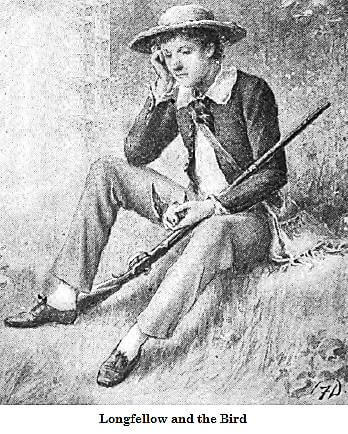 Stories of Great Americans for Little Americans
Stories of Great Americans
Stories of Great Americans for Little Americans
Stories of Great Americans


 Stories of Great Americans for Little Americans
Stories of Great Americans
Stories of Great Americans for Little Americans
Stories of Great Americans

Study the lesson for one week.
Over the week:
A passion is a strong feeling of excitement for something or about doing something. Longfellow's passion was poetry.
Activity 1: Narrate the Story
Activity 3: Recite the Story
Recite aloud the below lines from Longfellow's poem, 'A Psalm of Life.'
'A Psalm of Life' is about working hard and making an impact.
The poem also says your efforts may inspire those that follow you to achieve even greater things.